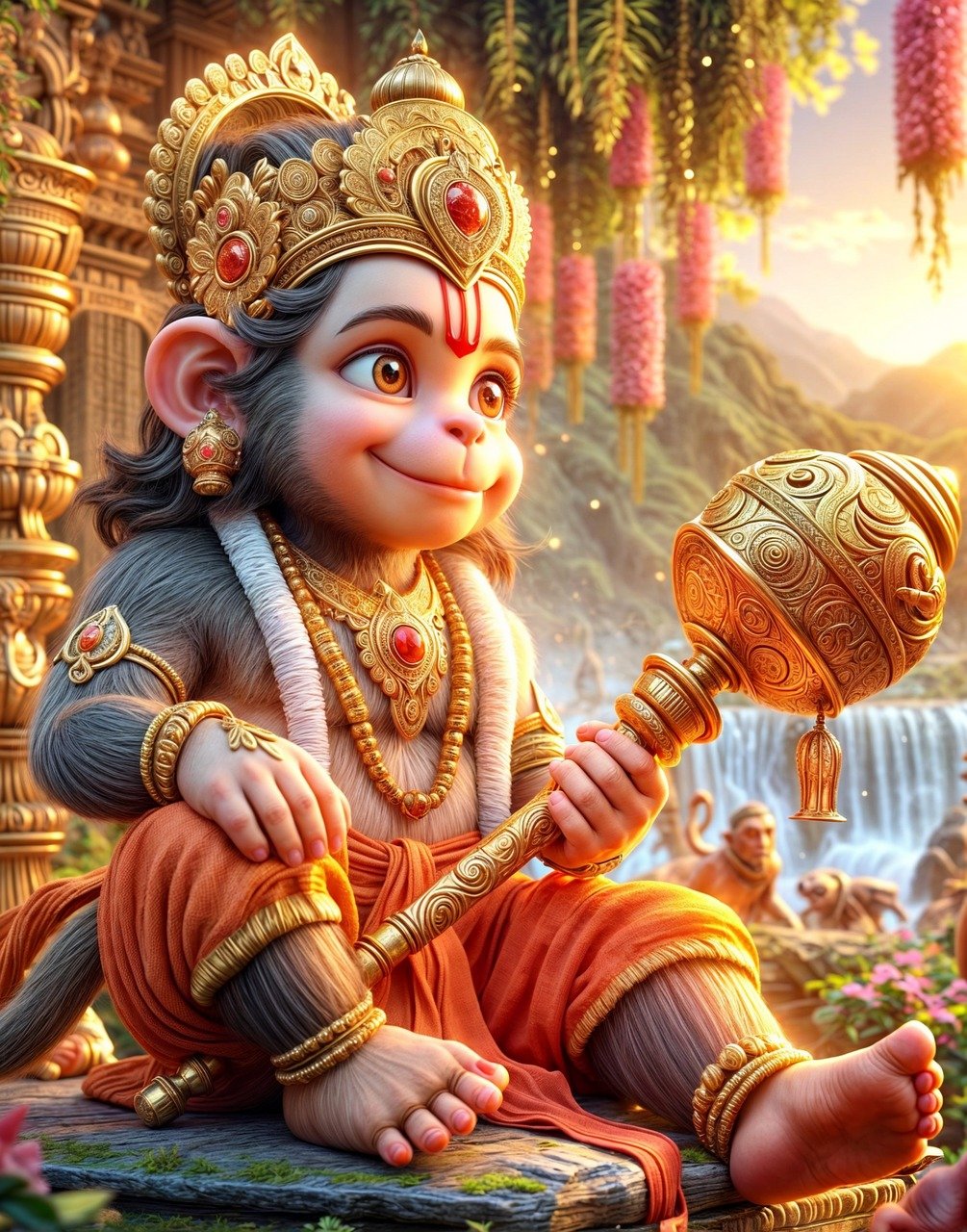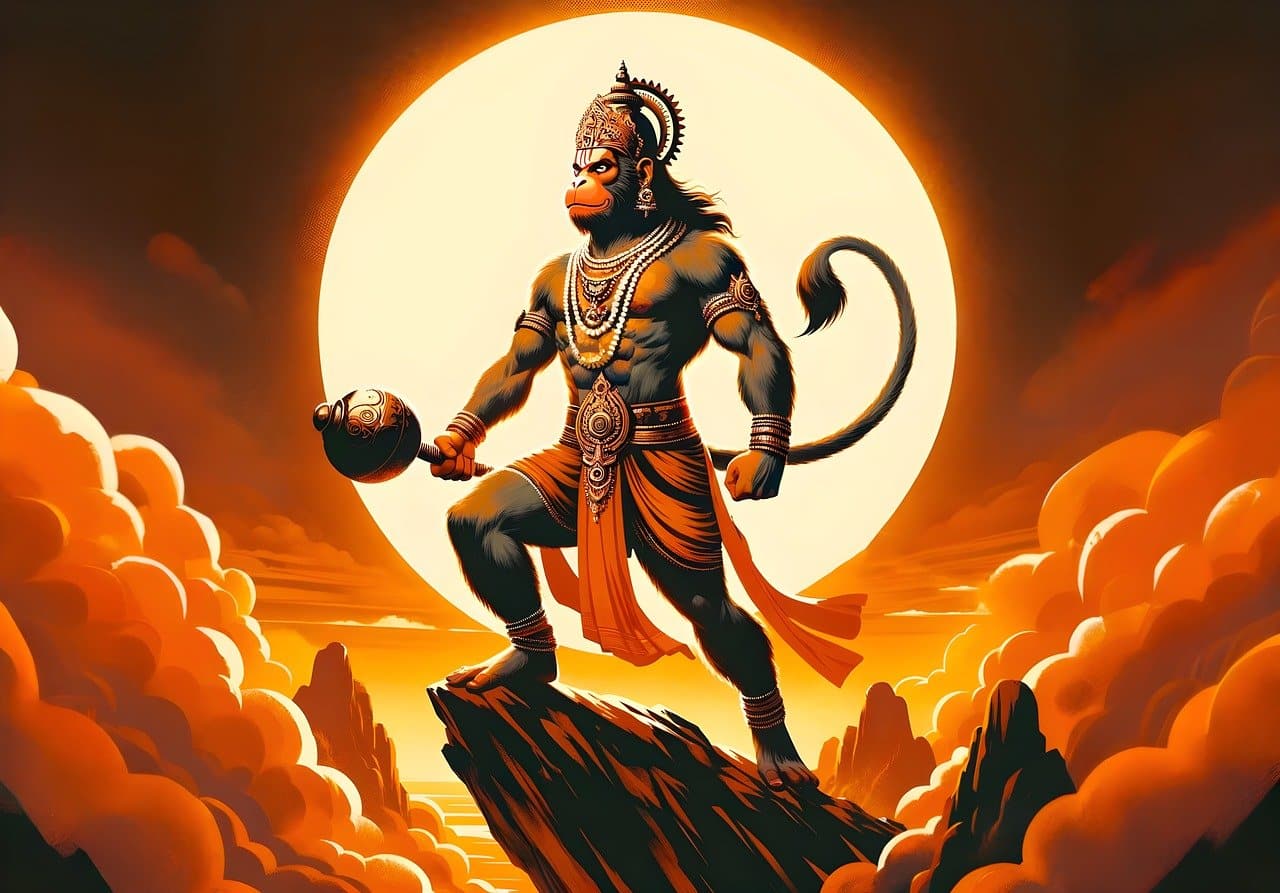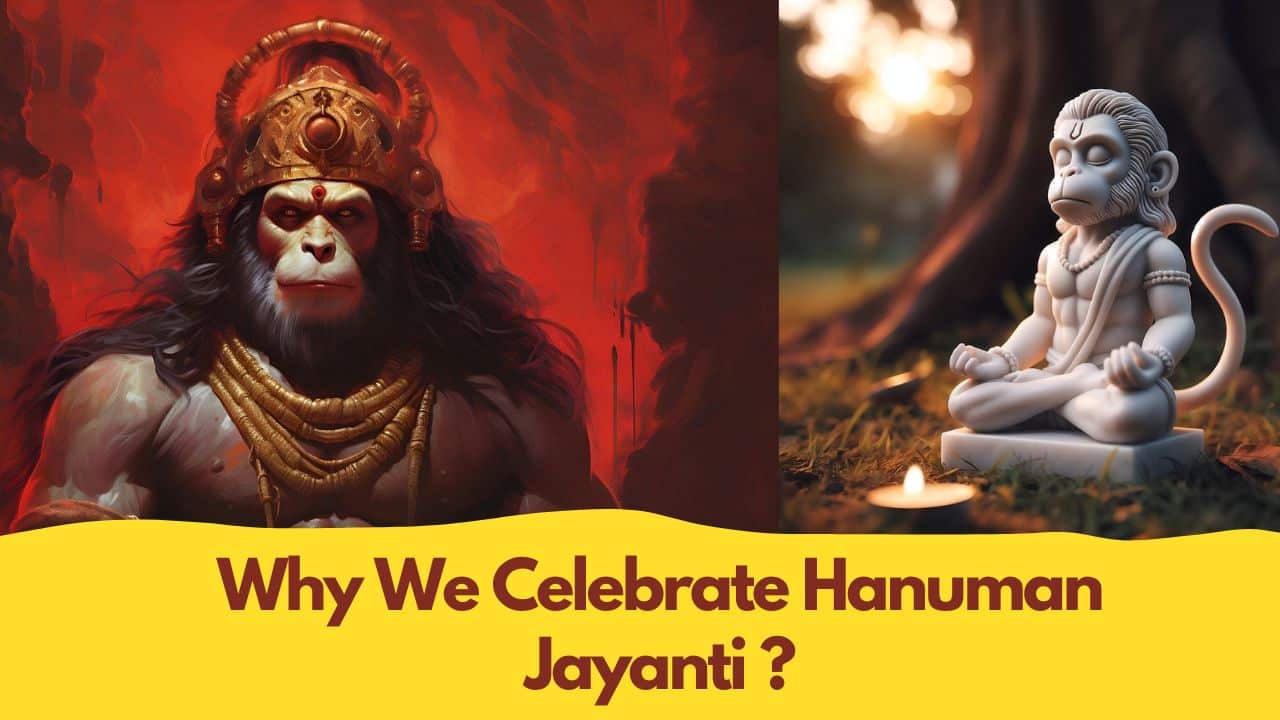Why We Celebrate Hanuman Jayanti ?
Hanuman Jayanti is one of the most revered and widely celebrated festivals among Hindu devotees in India. This auspicious day marks the birth anniversary of Lord Hanuman, who is worshiped for his unparalleled devotion, strength, and wisdom. As we delve into the significance of Hanuman Jayanti, it’s essential to explore the cultural and historical aspects that make this festival a cornerstone of Hindu tradition.
The Birth of Lord Hanuman
Hanuman Jayanti commemorates the birth of Lord Hanuman, a central figure in the ancient Indian epic, the Ramayana Hanuman was born to Anjana and Kesari, according to Hindu Mythology.

Anjana was an apsara (celestial nymph) who was cursed to live on Earth, and Kesari was a monkey king. Their prayers for a divine child were answered when Vayu, the Wind God, blessed them with Hanuman, who would grow to become a loyal devotee of Lord Rama.Hanuman’s birth is celebrated with great fervor, as he is considered an incarnation of Shiva and the son of Vayu, making him a divine entity with extraordinary powers. Devotees believe that Hanuman was born at sunrise, and thus, special prayers and rituals often begin early in the morning on Hanuman Jayanti.
Historical and Cultural Significance : Hanuman Jayanti
The history of Hanuman Jayanti is deeply rooted in Hindu mythology and scriptures. The Ramayana, where Lord Hanuman’s bravery and devotion are extensively chronicled, plays a significant role in understanding why this festival is celebrated with such zeal.
1.Symbol of Devotion: Hanuman is the epitome of devotion and loyalty. His unwavering dedication to Lord Rama is a guiding principle for many Hindu devotees. This devotion is celebrated on Hanuman Jayanti, serving as a reminder of the virtues of loyalty and selflessness.
2.Embodiment of Strength and Courage: Known for his immense strength and bravery, Hanuman is also called “Bajrangbali” (the strong one). On this day, devotees seek his blessings for strength and courage to face life’s challenges.
3.Destroyer of Evils: Hanuman is often worshiped as a protector who can ward off evil spirits and negative energies. Celebrating Hanuman Jayanti is believed to bring peace and protection to one’s home and family.

How Hanuman Jayanti is Celebrated
Hanuman Jayanti is celebrated with various rituals and ceremonies across different regions of India. Here are some common practices Observed by devotees:
1.Fasting and Prayers: Devotees observe fasts and offer prayers to Lord Hanuman. Temples dedicated to Hanuman are adorned with flowers, and special pujas (rituals) are conducted. Devotees chant the Hanuman Chalisa, a devotional hymn that praises Hanuman’s virtues and seeks his blessings.
2. Recitation of Scriptures: The Ramayana and other scriptures that recount the tales of Hanuman are recited in gatherings. This serves as a spiritual exercise and helps imbibe the values exemplified by Hanuman.
3.Processions and Celebrations: In many parts of India, especially in Maharashtra and Uttar Pradesh, grand processions are organized. Statues and images of Hanuman are paraded through the streets, accompanied by devotional songs and chants.
4. Offering Sweets and Food: Devotees prepare special sweets and dishes as offerings to Hanuman. These offerings are later distributed as prasad (blessed food) among family members and community members.
The Spiritual Essence of Hanuman Jayanti
Hanuman Jayanti is not merely a celebration of Hanuman’s birth; it is a day to reflect on the spiritual values that Hanuman embodies. The festival encourages devotees to cultivate virtues such as humility, devotion, strength, and unwavering faith.
1.Devotion and Faith: Hanuman’s life is a testament to the power of devotion and faith. His unwavering support for Lord Rama, even in the face of insurmountable challenges, is a source of inspiration for devotees. Hanuman Jayanti serves as a reminder to place our faith in the divine and remain steadfast in our spiritual pursuits.
2.Selfless Service: Hanuman’s acts of selfless service, whether it was finding Sita or bringing the Sanjeevani herb to revive Lakshmana, underscore the importance of serving others without expecting anything in return. Celebrating Hanuman Jayanti is an opportunity to reaffirm our commitment to selfless service and helping those in need.
3.Inner Strength and Resilience: Hanuman’s physical strength is often symbolic of inner strength and resilience. His ability to overcome obstacles and achieve the impossible teaches us to harness our inner potential and face life’s challenges with courage and determination.
Modern-Day Relevance
In today’s fast-paced world, the teachings and values associated with Hanuman Jayanti hold significant relevance. The qualities of dedication, strength, and humility are timeless and universally applicable. By celebrating Hanuman Jayanti, devotees not only honor a divine figure but also strive to embody these virtues in their daily lives.
Hanuman Jayanti also fosters a sense of community and shared spirituality. As families and communities come together to celebrate, it reinforces social bonds and collective faith, creating a harmonious and spiritually enriching environment.
Final Conclusion
Hanuman Jayanti is a festival that transcends mere ritualistic observance. It is a celebration of the enduring values and virtues that Lord Hanuman represents. For Hindu devotees, Hanuman Jayanti is a time to reflect, seek blessings, and renew their commitment to living a life of devotion, strength, and selflessness. As we celebrate this auspicious day, let us remember the divine legacy of Hanuman and strive to emulate his unwavering spirit in our own lives.
